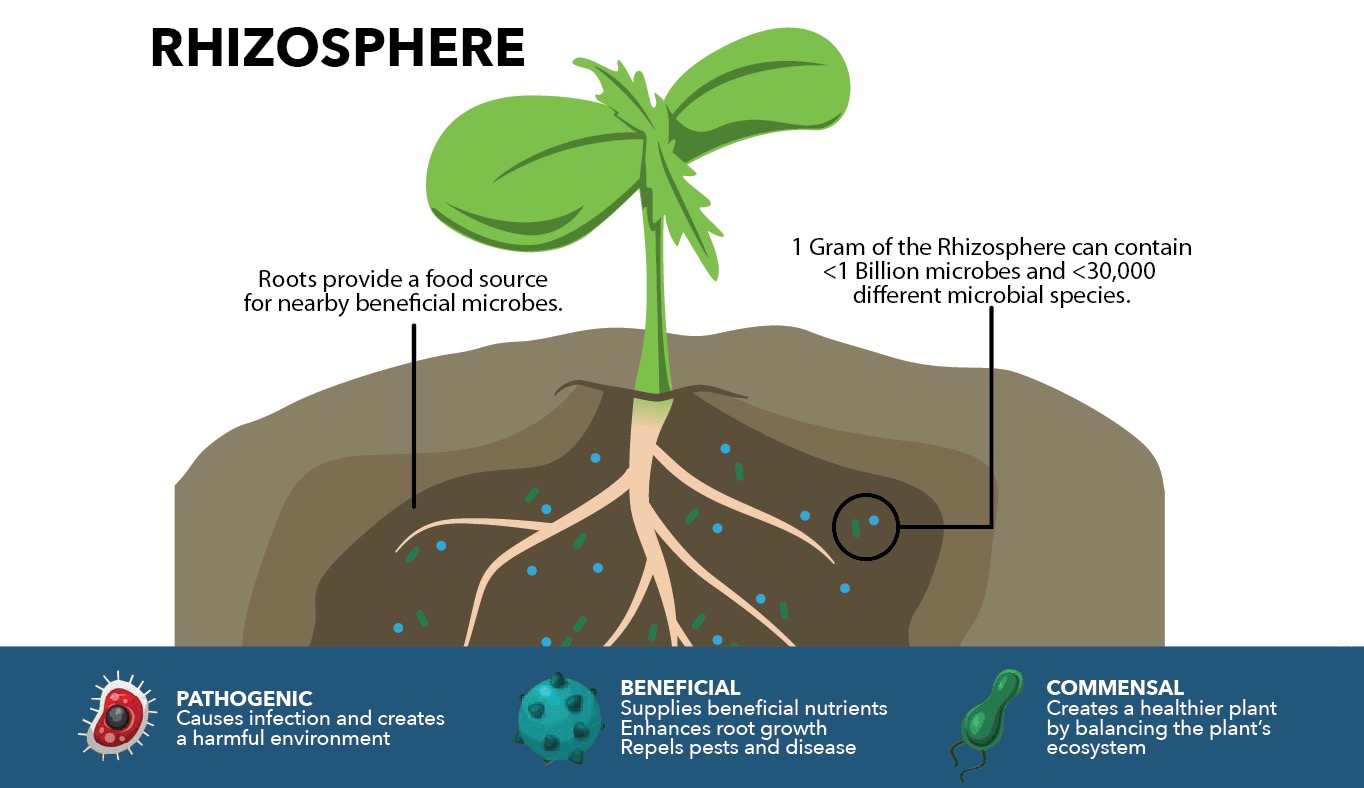Welcome to today's post, where we'll be discussing the importance of prebiotics in promoting healthy digestion. The digestive system is a vital part of the body, responsible for breaking down food into nutrients and eliminating waste products. A healthy digestive system is essential for overall wellness and can have a significant impact on our overall health and well-being. While many of us are aware of the importance of probiotics in maintaining a healthy gut, prebiotics also play a crucial role in promoting digestive health. In this post, we'll be exploring the benefits of prebiotics and how they support digestive health, including enhancing the growth of beneficial bacteria, improving bowel regularity, reducing inflammation, enhancing nutrient absorption, and boosting the immune system. So, let's dive in and learn more about the importance of prebiotics in promoting healthy digestion.
1, Enhances the growth of beneficial bacteria.
Prebiotics are types of dietary fiber that cannot be digested by humans but can be fermented by beneficial bacteria in the gut. By selectively stimulating the growth and activity of these beneficial bacteria, prebiotics can help maintain a healthy balance of microorganisms in the gut, which is critical for optimal digestive health and overall wellness.
Two examples of beneficial bacteria that are commonly found in the gut are Bifidobacterium and Lactobacillus. These bacteria play a significant role in maintaining a healthy gut microbiome, as they help break down food and produce beneficial compounds that promote digestive health. Studies have shown that prebiotics can enhance the growth of these beneficial bacteria, leading to improvements in gut health and a reduced risk of digestive disorders such as inflammatory bowel disease and irritable bowel syndrome.
In summary, prebiotics promote the growth and activity of beneficial bacteria, such as Bifidobacterium and Lactobacillus, which help in maintaining a healthy gut microbiome. By consuming prebiotic-rich foods or supplements, you can support the growth of these beneficial bacteria, leading to improvements in digestive health and overall wellness.
2, Improves bowel regularity.
Prebiotics can improve bowel regularity in several ways, including increasing the bulk and water content of stools, promoting the growth of beneficial bacteria, and reducing the harmful bacteria that cause constipation.
When prebiotics are consumed, they pass undigested through the stomach and small intestine and enter the large intestine, where they are fermented by beneficial bacteria. This fermentation process produces short-chain fatty acids (SCFAs) that help regulate gut motility and improve the water content and bulk of stools. As a result, bowel movements become more regular and easier to pass.
In addition to improving stool consistency and frequency, prebiotics also promote the growth of beneficial bacteria, which can outcompete harmful bacteria that cause constipation. Harmful bacteria in the gut can produce toxins and other substances that interfere with normal bowel function, leading to constipation and other digestive problems. By promoting the growth of beneficial bacteria, prebiotics can help maintain a healthy balance of microorganisms in the gut and prevent constipation.
In summary, prebiotics can improve bowel regularity by increasing stool bulk and water content, promoting the growth of beneficial bacteria, and reducing harmful bacteria that cause constipation. Incorporating prebiotic-rich foods into your diet or taking prebiotic supplements may help improve bowel regularity and overall digestive health.
3, Reduces inflammation.
Prebiotics have been shown to have anti-inflammatory effects on the gut, which can reduce the risk of digestive disorders such as inflammatory bowel disease (IBD).
Inflammation is a natural response of the immune system to injury or infection. However, chronic inflammation in the gut can lead to tissue damage and contribute to the development of digestive disorders such as IBD. Prebiotics can help reduce inflammation in the gut by promoting the growth of beneficial bacteria, which can produce anti-inflammatory compounds that help regulate the immune response.
In addition to promoting the growth of beneficial bacteria, prebiotics can also reduce inflammation by preventing harmful bacteria from adhering to the gut lining. Harmful bacteria can produce toxins that damage the gut lining and trigger an inflammatory response. By reducing the number of harmful bacteria in the gut, prebiotics can help prevent inflammation and promote overall gut health.
In summary, prebiotics have anti-inflammatory effects on the gut, which can reduce the risk of digestive disorders such as IBD. By promoting the growth of beneficial bacteria and preventing harmful bacteria from adhering to the gut lining, prebiotics can help reduce inflammation and promote overall gut health. Incorporating prebiotic-rich foods into your diet or taking prebiotic supplements may be beneficial for those at risk of developing digestive disorders.
4, Enhances nutrient absorption.
Prebiotics can enhance nutrient absorption in the gut, particularly minerals such as calcium, magnesium, and iron, by improving the health of the gut lining and increasing the activity of beneficial bacteria.
The gut lining plays a crucial role in nutrient absorption, as it is responsible for regulating the movement of nutrients from the digestive tract into the bloodstream. When the gut lining is healthy, it can effectively absorb nutrients, but when it is damaged or inflamed, absorption can be compromised. Prebiotics can help improve the health of the gut lining by promoting the growth of beneficial bacteria, which can help protect the gut lining and prevent inflammation.
Additionally, prebiotics can increase the activity of beneficial bacteria in the gut, which can improve nutrient absorption. For example, some beneficial bacteria produce enzymes that help break down complex carbohydrates and fiber into smaller, more easily absorbed molecules. Other bacteria produce acids that can help solubilize minerals such as calcium and magnesium, making them more available for absorption.
In summary, prebiotics can enhance nutrient absorption in the gut, particularly minerals such as calcium, magnesium, and iron, by improving the health of the gut lining and increasing the activity of beneficial bacteria. By promoting a healthy gut microbiome, prebiotics can help optimize nutrient absorption and support overall health and wellness.
5, Boosts the immune system.
Prebiotics can boost the immune system by stimulating the production of short-chain fatty acids (SCFAs), which have anti-inflammatory and immune-regulating properties.
The immune system plays a crucial role in defending the body against pathogens and maintaining overall health. Prebiotics can help support the immune system by promoting the growth of beneficial bacteria in the gut, which can produce SCFAs that have immune-boosting effects.
SCFAs are produced by the fermentation of prebiotics in the gut and are an important energy source for the cells that line the intestinal wall. In addition to their energy-producing role, SCFAs have been shown to have anti-inflammatory and immune-regulating properties. They can help reduce inflammation in the gut and regulate the immune response, which can help prevent the development of autoimmune diseases and other immune-related disorders.
In addition to stimulating the production of SCFAs, prebiotics can also help support the immune system by preventing harmful bacteria from adhering to the gut lining. Harmful bacteria can produce toxins that can damage the gut lining and trigger an immune response. By reducing the number of harmful bacteria in the gut, prebiotics can help prevent inflammation and support overall immune health.
In summary, prebiotics can boost the immune system by stimulating the production of SCFAs, which have anti-inflammatory and immune-regulating properties. By promoting the growth of beneficial bacteria and reducing harmful bacteria, prebiotics can help support overall immune health and prevent the development of immune-related disorders. Incorporating prebiotic-rich foods into your diet or taking prebiotic supplements may be beneficial for those looking to support their immune system.
In summary, prebiotics are non-digestible fibers that serve as food for beneficial bacteria in the gut, and they play a crucial role in promoting healthy digestion. By enhancing the growth of beneficial bacteria, improving bowel regularity, reducing inflammation, enhancing nutrient absorption, and boosting the immune system, prebiotics can have a significant impact on our overall health and well-being. So, if you're looking to promote digestive health and overall wellness, consider incorporating prebiotic-rich foods such as fruits, vegetables, and whole grains into your diet. Thank you for watching, and I hope this post has helped you understand the importance of prebiotics in promoting healthy digestion.

.jpg)



Comments
Post a Comment